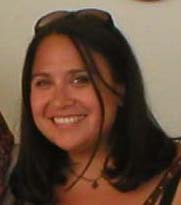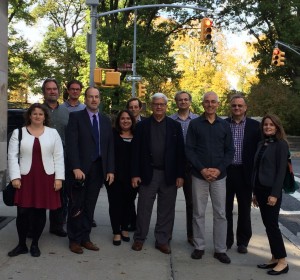 This post is by Angela Murillo, a member of CODATA Early Career Data Professionals Group, and Doctoral Candidate and Research Associate at the Metadata Research Center of the School of Information and Library Science at The University of North Carolina at Chapel Hill.
This post is by Angela Murillo, a member of CODATA Early Career Data Professionals Group, and Doctoral Candidate and Research Associate at the Metadata Research Center of the School of Information and Library Science at The University of North Carolina at Chapel Hill.
WUN – Data Diplomacy Workshop engages scientists to consider diplomacy in relation to scientific data.
On October 28-19th, 2015, I had opportunity to attend the WUN (World University Network) Data Diplomacy workshop titled “Data Diplomacy: Political and Social Dimensions of Data Collection and Data Sharing” organized by the University of Rochester and the Worldwide University Network. This workshop gathered a group of scientists and diplomats representing various disciplines who spent two days sharing experiences, expertise, and ideas in regards to data diplomacy. I was fortunate to attend as a representative of the CODATA Early Career Data Professional Working Group.
The workshop was held at the New York Academy of Sciences. For two days, we discussed the many aspects important to data diplomacy including:
- What is data diplomacy?
- Data Democratization
- Data Governance and Regulation
- Data Diplomacy for Data Curation
- Data Sharing and Standards
- Science Diplomacy
Dr. Timothy D. Dye, from the University of Rochester, School of Medicine & Dentistry organized and led the workshop. Additionally Dr. Jane Gateway from the University of Rochester Office of Global Engagement assisted with leading the program. Ten scientists and diplomats from around the world attending representing various disciplines including:
- Political Science and International Relations
- Computer Science and Information Science
- Earth Science
- Epidemiology
Through the discussion, we were able to establish 1) drivers for data diplomacy and 2) a working definitions for data diplomacy. Drivers for data diplomacy included a need to understand barriers and opportunities of complex data that is now available, as well as understanding how data is a driver of local and global acts, and how it allows for new relationships. Additionally we established some working definitions of data diplomacy including: 1) “data diplomacy creates, supports, or maintains technical or social relationships to mitigate barriers to action among stakeholders by enabling the use of data for societal benefit” and 2) “data diplomacy incorporates skills derived from diplomacy and data science with stakeholder needs, and recognizes that data itself is now an agent”. These definitions and attributes are being developed as we work on several publications in relation to Data Diplomacy.
Lastly, we developed a work plan which includes research to 1) describe the basic concepts of data diplomacy, 2) describe governance, standards, practices, and frameworks relevant to data diplomacy, 3) identify application of local diplomacy, and 4) create a set of use cases and identify empirical evidence of data diplomacy.
This workshop was a wonderful opportunity to contribute to an important discussion and new and evolving area of study; the intersection of diplomacy, data science, and stakeholders. Those who attended continue moving forward with our work plan, and hope to be able to report on publications as soon they are available.

